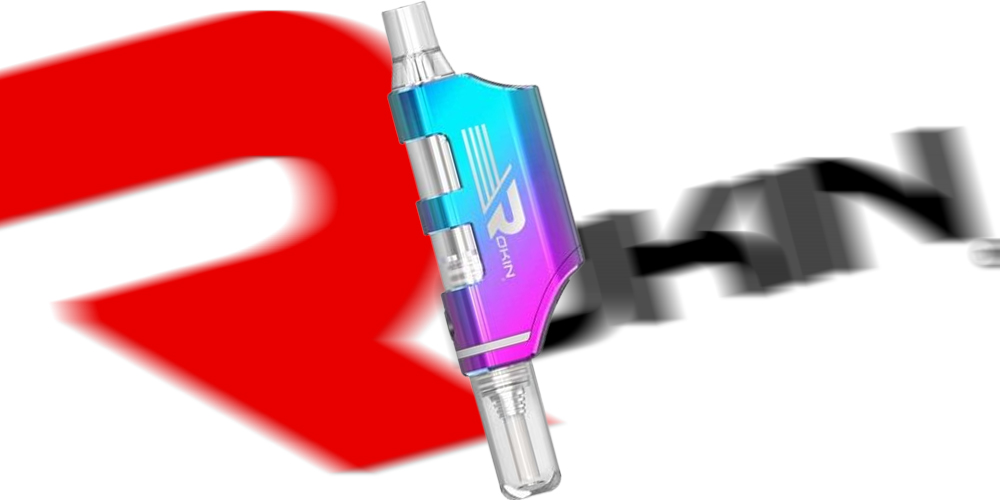
Hemp and marijuana are not the same. Though both terms are used to describe products from the cannabis plant, those products differ greatly in what they can offer interested users.
Typically, “marijuana” is used to describe psychoactive products or cannabis goods that will get users high. Marijuana tends to contain higher quantities of the cannabinoid compound THC, which provides effects like euphoria and poor coordination.
In contrast, “hemp” is a much broader category of cannabis products that contain any good that doesn’t get users high. Most often, hemp refers to the fiber of the cannabis plant, but the term can also describe cannabis seeds, cold-pressed oils, and more. Yet, if this is the case, why is it possible to vape hemp — what could that possibly mean?
The Most Popular Hemp Product
 The key characteristic of hemp is that it does not contain sufficient THC content to get users high. In fact, U.S. law demands that hemp farmers test their cannabis crops to ensure that their THC content is lower than .3 percent; any crop with THC above this threshold are culled. While some farmers do raise a hemp crop with the intention of producing fiber or harvesting seed, the majority of hemp farmers have a particular final product in mind: CBD.
The key characteristic of hemp is that it does not contain sufficient THC content to get users high. In fact, U.S. law demands that hemp farmers test their cannabis crops to ensure that their THC content is lower than .3 percent; any crop with THC above this threshold are culled. While some farmers do raise a hemp crop with the intention of producing fiber or harvesting seed, the majority of hemp farmers have a particular final product in mind: CBD.
In contrast to THC, CBD is a cannabinoid that does not cause users to become high. In truth, researchers aren’t yet certain the extent of CBD’s effects, but there are a certain number of known benefits of using CBD, such as:
- A reduction in the severity and frequency of seizures
- A reduction in the sensation of pain, especially through lessening inflammation
- A management of symptoms of clinical anxiety
- An aid to natural sleep processes
Users can obtain small amounts of CBD in psychoactive marijuana. In fact, there are high-CBD strains, like Charlotte’s Web, that are prescribed to those suffering from epilepsy and other disorders known to be treated with CBD. However, those disinterested in partaking of THC in addition to CBD must rely on marijuana extracts or concentrates — or else hemp products.
CBD isolates and concentrates come in many forms. Most popular are CBD oils, which can be administered under the tongue or mixed into food and drinks. There are also pre-made CBD edibles as well as CBD topicals like lotions and salves. However, for those who need rapid and regular doses of CBD to manage a health condition, vaping CBD is perhaps the best option.
What to Know About Vaping Hemp

Hemp CBD oil — not to be confused with hempseed oil, which can be used as a tincture or in cooking — can be used in vaping when it is specifically marked as appropriate for inhalation. Some CBD oils contain MCT oil, which can pose serious health risks to the lungs. When looking for CBD products for vaping, users should consider only these options:
- CBD vape juice. Though sometimes called “vape oil,” CBD for vaping actually doesn’t contain any oil and thus is more appropriately called “juice.” Vape juices are produced with food-grade ingredients, meaning they can also be taken orally, but most importantly, they don’t contain compounds that can harm the lungs. At most, a vape-worthy CBD juice will contain propylene glycol (PG), vegetable glycerin (VG), CBD extract, terpenes, and other cannabinoids.
- CBD cartridges. Unlike juice, which is used to refill a vape pen tank, CBD cartridges are pre-filled, disposable tanks, which are compatible with more affordable and accessible pod vapes. Cartridges are certain to be safe for vaping, but they do come filled with different dosages and types of CBD.
As is always true concerning cannabis use, users will need to experiment with CBD dosage to understand what most benefits them. People metabolize cannabinoids differently, so neither doctors nor budtenders (dispensary workers) can provide a certain prescription for CBD use. Typically, a vape cartridge containing 100 milligrams of CBD delivers between 1 and 2 milligrams of CBD per inhale; total beginners might start with a single puff and wait a few hours to better understand their effects before dosing again.
CBD made from hemp has been decriminalized and is available in most states. Because there seem to be minimal side effects to CBD — the most common of which is mild drowsiness felt after high doses — it is a safe treatment for some serious health conditions. For many, CBD is the solution they need, and vaping is a convenient way to get it.








